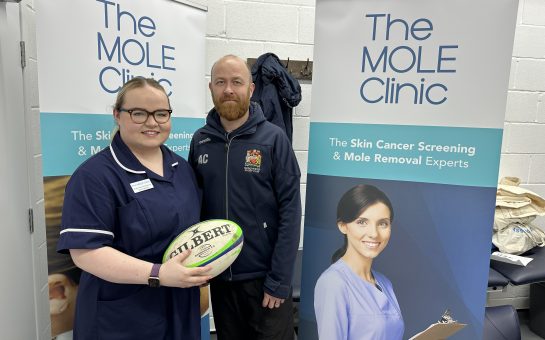A Harley Street plastic surgeon faces being struck off in disgrace after a Manchester hearing found him guilty of giving tips to nurses on how to illegally administer Botox to patients.
Dr Mark Harrison, 51, charged £400 a day for a training course in which he advised attendees how to illegally split Botox measures prescribed for one patient so they could be used on other people.
It was claimed he even suggested they secretly use saline solutions to ‘top up’ the amounts.
The Managing Director of Harley Aesthetics was exposed during a covert BBC investigation in 2012.
Acting on a tip-off, a BBC London journalist posed as a trainee nurse to secretly film the doctor during one of his ‘Introduction to Botox’ training courses.
It was claimed the medic who lives in a £4million townhouse in Kensington told nurses to use Botox on a patient that had been prescribed to another and actively encouraged them to not pay adequate regard to a patient’s medical history before administering Botox.
On a recording Dr Harrison was filmed telling the nurses: “Strictly speaking a vial with a patient name on should only be used on that patient. We use it on a number of people. Is it ever an issue? No.
“It is not legal, but it’s what everybody does… doctors, professors, me. Just order a vial in your name – it’s not policed at all.”
At a Fitness to Practice hearing in Manchester, a disciplinary panel were asked to consider whether Dr Harrison had been a victim of ‘entrapment’ by BBC investigator Guy Lynn but it rejected the claim saying the journalist was a ‘reliable witness’.
It also found Harrison guilty of making dishonest and misleading statements to an preliminary hearing of the General Medical Council but cleared him deliberately encouraging the trainees to use saline solution as a top up dismissing his comment about it as a ‘light hearted remark’. He was also cleared of other misconduct charges.
Harrison did not attend the medical tribunal but an earlier hearing denied wrongdoing. He said: ”I can understand that on a busy ward with lots of different vials and lots of different patients, to use vials between patients would be dangerous. It would be unacceptable.
”However, in the context of Botox where you have a single practitioner administering a single medication to one patient at a time, I would contend that that is not dangerous, but I have not been accused of doing it. So, I do not encourage nurses to do that.”
In finding Harrison guilty, the panel said: ”Dr Harrison, during the Botox course, encouraged attendees to order Botox in the name of patients for whom it was not intended to be used. Dr Harrison, on several occasions, encouraged this practice.”
He now faces further hearings to decide whether his fitness to practise medicine is ‘impaired’.
Dr Harrison’s company Harley Aesthetics was one of the UK’s largest purchasers of Botox, with each treatment starting from £200.
In telephone calls recorded before he was suspended for 18 months in July 2012, the company, on behalf of Harrison, issued Botox in the name of patients for who it was not intended to be used, it was said.
It also advised the use of Botox on a patient which had been prescribed to another and advised a nurse to administer Botox without obtaining a prescription or ensuring the patient had a consultation with the prescriber, the General Medical Council heard.
It was claimed Dr Harrison then attempted to conduct a consultation with a new patient after the Botox had already been injected. Dr Harrison and Harley Aesthetics were accused of ‘remote prescribing’ – prescribing injectable medicines over the phone or online.
It was said he encouraged nurses to administer medication without any face to face consultation, and said patients could telephone him afterwards for a check-up. He had built up a network of hundreds of nurses who phoned him on his mobile from across the UK to receive authorisation to inject patients immediately with Botox.
The case comes after the GMC banned doctors remotely prescribing injectable cosmetic medicines, such as Botox, on the phone, fax or online, without a face-to-face consultation.
In an earlier statement in July 2012 Niall Dickson, chief executive of the GMC, said: “There are good reasons why these are prescription-only medicines, and we believe doctors should assess any patient in person before issuing a prescription of this kind.”
Story via Cavendish Press.
Image courtesy of Gates Foundation, with thanks.



